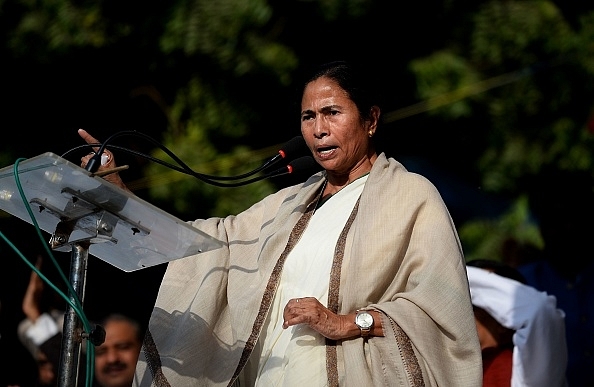
Demonetisation: Modi’s Charge Against Detractors Rings True
It’s the most guilty that shouts the loudest. Prime Minister Modi couldn’t be more right.
Modi said that critics of
the demonetisation drive were hurt because the government did not give them
enough time to prepare for it.
Prime Minister Narendra Modi’s charge that political parties were criticising the demonetisation decision since they were caught unawares, holds very true. Speaking at the Constitution Day celebration at Parliament Annexe today (25 November), Modi said that critics of the demonetisation drive were hurt because the government did not give them enough time to prepare for it.
Modi said if they (the political parties) were given even 72 hours advance notice (about the impending demonetisation), they would have commended the move. What Modi was hinting at is that these political parties would then have got ample time to get rid of their huge hoards of (the now demonetised) Rs 500 and Rs 1,000 notes in their coffers.
Bengal Chief Minister Mamata Banerjee and Delhi Chief Minister Arvind Kejriwal, the two loudest critics of demonetisation, unwittingly endorsed Modi’s charge earlier when they protested that Modi did not consult them before announcing the demonetisation. Rahul Gandhi, too, mouthed this grouse on Thursday.
The whole idea behind demonetisation, and the key to its effectiveness, was the surprise element. Had political parties been taken into confidence, they would not only have rushed to convert their illegal and unaccounted-for cash hoards into the new currency or found ways to convert them into white money, they would also have tipped off their favourite businessmen and traders who have similar hoards. And the effectiveness of demonetisation would have been nullified.
If the reputation of the political parties protesting their not being taken into confidence by Modi is examined, it would be amply evident that Modi’s charge that these parties were caught unawares is true. Parties, which have a clean reputation, like Naveen Patnaik’s BJD and Nitish Kumar’s JD (U), have no problems with not having had advance information on demonetisation. It is the ones who are perceived to be corrupt, like Mamata’s Trinamool Congress, Mulayam’s Samajwadi Party, Jayalalitha’s AIADMK, Karunanidhi’s DMK and, of course, the Congress, which are shouting themselves hoarse over demonetisation, and have publicly expressed their resentment over not being consulted over the move.
Take the case of Banerjee’s Trinamool Congress. There is no gainsaying the fact that in popular imagination, the Trinamool and its various leaders are perceived to have received huge sums of money from the Saradha and other chit funds. In fact, Banerjee’s MPs and ministers have also been arrested for having received tainted money from chit fund operators. Lakhs of people, mostly poor and underprivileged, of Bengal have been defrauded of their life’s savings, scores have committed suicide, and lakhs reduced to penury by the chit fund scams in Bengal.
That the chit funds could not have operated without the knowledge and patronage of the ruling parties (first the CPM and then the Trinamool) is a well-established fact. It is also equally true that these parties benefitted from chit funds whose operators parked huge sums of money running into hundreds of crores of rupees with these parties and their senior functionaries.
In Bengal, thanks to the culture of inconspicuous consumption, these monies are largely held in cash by the scams’ beneficiaries. Politicians in Bengal don’t purchase high-end SUVs or build palatial bungalows for themselves. Nor do they sport expensive diamond-encrusted watches or thick, gems-studded gold chains. They hoard the cash they receive from scamsters, businessmen and industrialists. And, thus, they are the most adversely affected by demonetisation.
This explains why the transaction volume for the exchange of old Rs 500 and Rs 1,000 currency notes in the first few days after demonetisation, before restrictions were put in place, was more than a whopping Rs 3,000 crore a day in Bengal! For an economically and industrially backward state like Bengal, that’s huge sum of money. Till 24 November, more than Rs 40,000 crore (in the demonetised currency notes) were deposited in banks in Bengal. This is much more than the figure in many other states, and the only reason can be that the number of people holding onto unaccounted-for cash in Bengal is quite high. And it doesn’t require a rocket scientist to figure out that most of these people are politicians, especially of the ruling party in the state.
Bengal also saw the highest deposits of cash (Rs 21,000 crore till date) in the 44.94 lakh Jan Dhan accounts after 8 November. That means, on an average, each Jan Dhan account in Bengal now holds nearly Rs 48,000! The poor in Bengal have, thus, become much richer than their counterparts in the rest of the country. There can, but, be only one explanation for this -desperate politicians belonging to the ruling Trinamool Congress have forced Jan Dhan account holders to park their (the politicians’) ill-gotten wealth in their accounts.
Is it thus, any wonder that among the fiercest critics of demonetisation is a desperate Mamata Banerjee? To tweak that popular adage, the most guilty shouts the loudest. Prime Minister Modi couldn’t be more right.